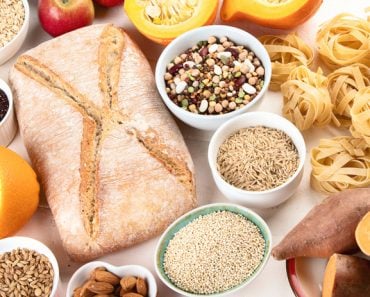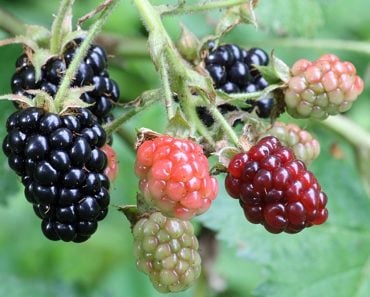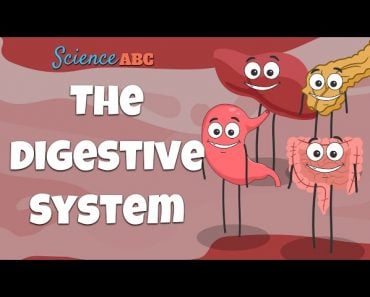Table of Contents (click to expand)
The difference between sugar in fruits and sugar in candies is that sugar in fruits is natural and takes longer to be digested by the body, while sugar in candies is processed and can cause spikes in blood sugar and insulin.
Whether you consider yourself to have a “sweet tooth” or not, there is no denying that sugar is an incredibly important – and prevalent – part of our lives. Sugar is in almost everything we eat, from candy bars and soda to apples and tomatoes. However, it is important to remember that not all sugars are created equal, and they are processed by the body in very different ways. Some sugars are essential to our body’s metabolism, while others tend to contribute to obesity, heart attack risk and cancer. Knowing the difference is not only important, but could also save your life – and your waistline.
So, what’s the difference between all these different forms of sugar?
Short Answer: Natural sugars that are found in fruits and vegetables take longer to be digested by the body, and are used responsibly, whereas processed or refined sugar can cause spikes in our blood sugar and insulin, leading to their storage as fat, where they can wreak havoc on many of our bodily processes.
Recommended Video for you:
The Story Of Sugar
Before we can understand which sugars are good for you, and which ones might be shortening your life span, it’s important to look at the differences between the four main types of sugar that we come across every day.
Glucose – This is the most basic form of sugar, and is found in every single cell of the human body. It is also found in almost every type of food that contains “carbohydrates”, from bread and mushrooms to pasta and milk. Eventually, our bodies break every form of sugar down into glucose, which we use for energy throughout our body. Glucose is considered a “simple” sugar and is widely known as “blood sugar”, since it is the type of sugar that circles through your veins.
Fructose – As the name implies, this is the type of “simple” sugar that you will find in many fruits and vegetables, as well as honey. This type of sugar is slightly more difficult to break down than glucose, as it must be processed by the liver before being converted into energy. It tends to behave more like a fat than a carbohydrate, does not stimulate the release of insulin, and doesn’t signal the release of ghrelin, which regulates energy use, expenditure and hunger.

Sucrose – This is the combination of fructose and glucose, typically 50:50, and is commonly known as table sugar. It is found naturally in sugar cane or sugar beets, and is cultivated around the world. When sucrose is added to foods and consumed, the body must handle processing both types. Glucose typically gets turned into energy, which the body prefers, but the fructose is then pushed to the side and processed for fat storage.
High-fructose Corn Syrup – This is the type of processed sugar that has surged in recent decades, and is a very common sweetener in foods. Derived from corn, it is milled to produce corn starch, and then processed to produce corn syrup. It is made in different concentrations, the highest being 90% fructose. Again, similar to sucrose, the body will process the glucose into energy for a quick burst, while the remainder will often be turned into fat storage for later energy use. This is also the type of syrup that most often results in the terrible “sugar crash” that we feel.
What’s The Difference And Why Does It Matter?
For the first two types of sugar, which are natural and derived from the foods we eat, they are not pure forms of the sugar. They are accompanied by protein, fiber, minerals and vitamins that the body requires to metabolically function and stay healthy. For example, when you eat an apple, you not only get fructose, but also fiber and a wealth of vitamin A, vitamin B, vitamin C, phytonutrients, pectin, quercetin and other flavonoids. This means that the digestive process will be slower, allowing the body to naturally process the sugar and convert it into glucose that the body can use, with very little fat storage, because the body won’t be overwhelmed.
When you consume sucrose or high-fructose corn syrup, for example, it might be included in a candy bar, which has very little nutritional value and can be digested extremely quickly by the body, resulting in a huge surge in blood sugar. In response to this burst of glucose, the pancreas will be stimulated to produce a large amount of insulin to counteract the spike in blood sugar. This will stop the energy conversion process. Remember, the liver is the only organ that can digest fructose, so when it becomes overworked, it simply converts the rest of the sugar into fat. At that point, the body doesn’t “think” that it needs any more energy. Hence, the famous sugar crash that leaves you feeling exhausted after you pound two cans of Coke.
Since these refined and processed sugars are metabolized so quickly (into bursts of energy and fat), your body doesn’t feel full, leading you to eat more food, typically with more processed sugar, and the cycle begins all over again.

The reason this matters is that refined sugars have only been a part of our daily diet for the past few decades, which has been directly correlated with rising obesity levels all around the world. As you may know, obesity is linked to a number of other chronic conditions, including diabetes (the body’s inability to properly regulate or make insulin), cardiovascular disease and cancer.
On the other hand, sources of natural sugars, namely fruits and vegetables, are excellent sources of dietary fiber and antioxidants, which can reduce cholesterol levels and lower your risk of cancer, respectively.
Refined sugars may be cheap and easy ways to add a sweet flavor to foods, but they also may be slowly destroying global health and creating a generation of sickly people addicted to the wrong kind of sugar. If you’re concerned with your long-term health and wellness, try to avoid refined sugars, increase the amount of whole foods you eat, and load up on fruits and veggies whenever you can!













